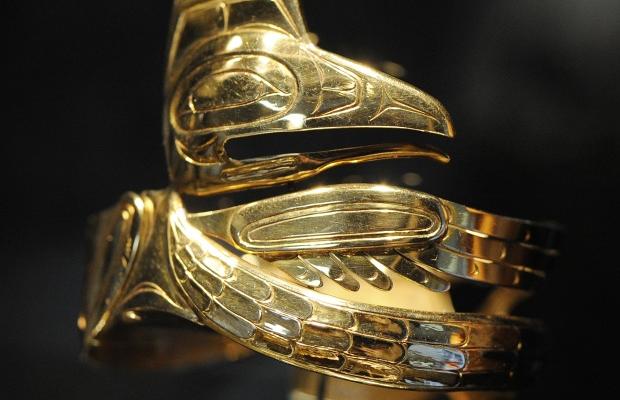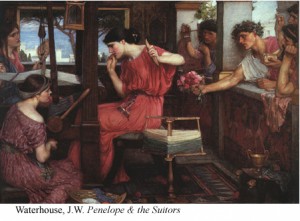Summary: Corrina
I liked how the novel started with the quote by W.B. Yeats, “There is another world, but it is in this one.” It captures the protagonist, Junior’s rich imagination, his inner world – and also the fact that the Aboriginal people have been erased to a great extent from the public eye or understanding and have become a hidden world. It also shows how we have the power to choose our own worlds through the power of perception, choice and action which Junior does.
Junior, is a young, gifted but delicate (neurologically and physically) boy who lives on a Native Reservation. Life is brutal there, he is beaten regularly, ridiculed and subjected to an atmosphere of poverty, apathy, violence and despair. During the course of the novel Junior will witness this tragic atmosphere lead to numerous tragedies that successively shock the youth (and adults) of the community into more despair, hopelessness and alcohol fuelled depression and rage. It is clear that one of the biggest themes of this novel will be potential – unfulfilled potential and the importance of maintaining hope, even when it is tenuous even miraculous in nature. One of the most riveting cartoons is on page 12, where Junior draws his parents “if somebody had paid attention to their dreams.” His mother is a successful Community College teacher, his father, “the fifth best Jazz Sax player West of the Mississippi.” Interestingly, his vision is modest – his mother does not teach at Harvard, but at the local Community College and his father is the “fifth best” Sax player… this vision is his accurate assessment, and shows our narrator is hopeful, positive but also realistic in his perceptions of the people and situations in his life. His dreams are not as starry eyed or without careful, even cynical thought put into it.
In the first 12 chapters, Junior makes the difficult decision to leave the reservation. He has a break down after realizing he is studying the same text book his mother had in school. He has witnessed his sister’s demise since leaving school, and both his parents struggle with alcoholism. Their poverty led to their killing his beloved dog instead of taking him to the vet. These events culminated with Junior hurling his text book at his teacher, Mr. P, distraught with the realization that the education system is just as apathetic, corrupt and helpless as the rest of the community. Rather than retaliate, Mr. P surprised Junior by confiding in him the importance of leaving. “they’re going to kill you. I’m going to kill you. We’re all going to kill you. You can’t fight us forever.” says Mr. P. “Son. You’re going to find more and more hope the farther and farther you walk away from this sad, sad, sad reservation.”
Junior’s best friend, “Rowdy” does not take the news of his leaving well. Rowdy is emblematic of the entire reserve, in one confusing bundle of rage Rowdy unleashes his anger and sense of betrayal at Junior’s decision. Junior holds fast and transfers schools.
He falls in love with a girl named Penelope, and is also shocked when the school jocks/bullies call him names yet have no interest in fighting him. Junior is confused because the “rules” of the school are so different from those of the reservation. He realizes he is going to have to adapt in more ways than one. Junior’s cool factor is bumped when his dad’s friend Eugene drives him to school without a helmet (and drinking!) on his motorcycle. There is a Halloween party where Junior and Penelope both arrived dressed as homeless people, the scene brings to light some of the novel’s themes of class and poverty. For Junior, this is the only costume he was capable of conjuring given his very real poverty status. For Penelope, dressing this way for a day was an act of charity.
Tuesday, July 17th, 2012 Chapter 6-12 Summary (Gloria)
Note: The content of my summary may sound random because I focused on answering questions on the lit. circle roles instruction sheet.
1. “Rowdy still respected my cartoons. And so maybe he still respected me a little bit” (103).
On the Thanksgiving Day, Junior draws a cartoon of Rowdy and himself and gives it to Rowdy as an attempt to mend their broken relationship. Junior expects Rowdy to rip the drawing to pieces, but surprisingly he does no harms to it. This is passage is important in examining Rowdy’s character. From reading this passage, we learn that, just like Junior, Rowdy also has missed the time when he and Junior were friends, indicating that he is not a one-dimensional character who is always angry and violent. By not tearing Junior’s drawing into pieces, Rowdy hints Junior that their friendship is not completely over. Another point we can discuss with this passage is the function and power of Junior’s drawings. His drawings not only express his feelings and opinions but also serve as a tool that maintains a relationship.
2. “Indian boys weren’t supposed to dream like that. And white girls from small towns weren’t supposed to dream big, either. We were supposed to be happy with our limitations. But there was no way Penelope and I were going to sit still. Nope, we both wanted to fly” (112).
One day, Arnold discovers that Penelope suffers from eating disorders, bulimia and anorexia. Penelope cries and confesses to Arnold how scared she is of living up to other people’s expectations. Shortly after, she chooses Junior as her new boyfriend. One day, Penelope complains to Arnold that people in her town have small dreams and that nobody takes her dream seriously. When Arnold asks her what her dream is, she says that she wants to study architecture at Standford University. During their conversation, Arnold finds many similarities between them. He realizes that both of their communities expect them to be happy with their limitations but they have been dreaming big and eager to “fly” and explore the world outside their small communities.
3. Gordy: “I think it means you’re just a racist asshole like everybody else” (116).
Being in love with Penelope, a white girl, and not knowing what to do to win her love, Junior asks Rowdy for advice, but the latter only tells him to stop treating white girls as “trophies”. So, Junior asks Gordy for help. Gordy does some research, as expected from his character as a studying freak, and he finds two news stories about girls who have gone missing—one about hundreds of Mexican girls and the other about a white girl. He concludes his storytelling by criticizing the racist notion that only white girls are privileged and tells Junior that Junior is a “racist assholes like everybody else”. This passage implies that Gordy’s character is not simple, either. Since he has been described as a bookwork, I believe that many of us must have been surprised when Gordy used the word, “asshole”. I think that this word has a greater impact on Junior than any other sophisticated word that criticizes somebody
4. Penelope: Are you poor?
Arnold: Yes, I’m poor.
“If you let people into your life a little bit, they can be pretty damn amazing” (129).
(a photo of a winter formal)
On the day of the Winter Formal, Arnold dresses in his father’s old suit and fears that he will disappoint Penelope. However, Penelope compliments his suit, so they have great time at the dance. The problem comes when they go to a diner to have pancakes. Fearful of being pitied or scorned for being poor, Arnold pretends that he has forgotten his wallet at home. However, Roger senses that Arnold is hiding the truth and tells his opinion to Penelope. Eventually, Arnold admits that he is poor. However, he feels glad that he has done so because now that his friends know the truth, he does not have to make excuses to pretend to be someone else. Also, he realizes that accepting his friends’ advice and helps is not shameful.
Chapters 16-20, Sara, July 17
Chapter 16 starts with a description of Arnold’s love for Penelope. Isn’t Penelope the name of Odysseus’ wife? He goes off to fight the Trojan war and she pines for him? And she is regarded as extremely faithful because she has many suitors, but she does not give up on the hope of her husband returning. Is this related to the hero’s quest that Nabil has been talking about? Also the daughter of Icarus, who falls to the earth because he has flown too close to the sun? Very interesting connections happening there.
Anyhow, Arnold is called a “racist asshole” by both of his best friends basically for falling for the white girl.
Chapter 17: Arnold takes Penelope to the dance and both she and Roger discover how poor he actually is. I love how Junior just goes to the restaurant and orders a big meal even though he can’t afford it. So courageous and stupid at the same time.
Chapter 18: Rowdy sends Junior a picture of his ass. The two are incommunicado basically, but this picture is regarded as a sign of hope. This chapter also has to do with Junior and Gordy’s friendship which is being cemented. Gordy and Rowdy are quite the character foils.
Chapter 19: A letter from Mary, kind of depressing but Junior is trying to stay hopeful for her and for him I guess.
Chapter 20: Arnold tries out for the Reardan basketball team and makes it! He is surprised, as is everyone else! He manages to beat Roger again, and once again he does not get punished for beating the alpha male. We meet Junior’s Coach who “coaches” Arnold through his first pre-game jitters as they play the rez team. When they go to the reservation to play, the whole community turns its back on Arnold; this is a major sign of disowning and abandonment. Junior is on his own. And then he gets hit in the head (which is fragile due to his seizures) by Rowdy, and gets literally knocked out of the game. His coach stays with him in the hospital and there is a sense of camaraderie building and of Junior really becoming part of the team at Reardan.
Meena: Chapters 27-29
In chapters 27-29 Junior faces another tragic event, he finds out at school that his sister has passed away. Junior is shocked as the school counsellor breaks the news to him. Junior then decides to wait for his father outside in the freezing cold snow instead of the counsellor’s office. Waiting outside for his father Junior fears that even his father will be killed on the way to pick him up. Luckily, his father makes it safely to the school, and Junior laughs hysterically the whole way home. Junior’s fathers tells him of how his sister and husband had thrown a party in their trailer, and were drunk, someone left the stove on and the curtains had caught fire causing the whole trailer to go up in a blaze. Junior’s sister and husband perish in the fire and Junior’s mother blames alcohol as the contributing factor. She makes Junior promise that he will never drink. Junior comes to the realization that alcohol is the evil monster that is slowly killing all the Indians on the reserve. He views the reserve as a big jail and vows to never let it ‘kill’ him. During his sister’s funeral, Junior runs into a crying Rowdy who blames Junior for the cause of his sister’s demise, blaming him for leaving the reservation and hence causing his sister to do the same. School is eventually out for the summer and Junior’s parents are proud of his accomplishments. In the last chapter, Rowdy visits Junior at home and they form a friendship again. The chapter ends with the two boys playing basketball but not competing, rather they play together as friends for the love of the game, and nothing else.






One Comment
Could you elaborate on Gordy and Rowdy being foils?